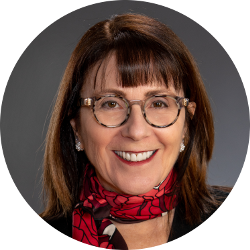
Dr. Lisa Feldman Barrett
Lisa Feldman Barrett, PhD, is among the top 0.1% most cited scientists in the world for her revolutionary research in psychology and neuroscience. She is a University Distinguished Professor of Psychology at Northeastern University. She also holds appointments at Harvard Medical School and Massachusetts General Hospital, where she is Chief Science Officer for the Center for Law, Brain & Behavior.
In addition to the books Seven and a Half Lessons About the Brain and How Emotions are Made, Dr. Barrett has published over 275 peer-reviewed, scientific papers appearing in Science, Nature Neuroscience, and other top journals in psychology and cognitive neuroscience, as well as six academic volumes published by Guilford Press. She writes regularly about science in the popular press, including The New York Times, The Guardian, Scientific American, BBC Science Focus, Popular Science, Nautilus, BigThink, Cosmopolitan, Time magazine, MIT Technology Review, and more (see full list). Her popular TED talk has been viewed over 8 million times.
Dr. Barrett received a National Institutes of Health Director’s Pioneer Award for her revolutionary research on emotion in the brain. These highly competitive, multimillion dollar awards are given to scientists of exceptional creativity who are expected to transform biomedical and behavioral research. She also received a Guggenheim Fellowship in 2019, the APS Mentor Award for Lifetime Achievement in 2018, and the APA Distinguished Scientific Contribution Award in Psychology in 2021.
Among her many accomplishments, Dr. Barrett has testified before Congress, presented her research to the FBI, consulted to the National Cancer Institute, appeared on Through The Wormhole with Morgan Freeman and The Today Show with Maria Shriver, and been a featured guest on public television and podcast and radio programs worldwide. She was president of the Association for Psychological Science in 2019–2020 and co-founded the Society for Affective Science. She is also an elected fellow of the American Academy of Arts & Sciences and the Royal Society of Canada.
See a more detailed biography at affective-science.org.